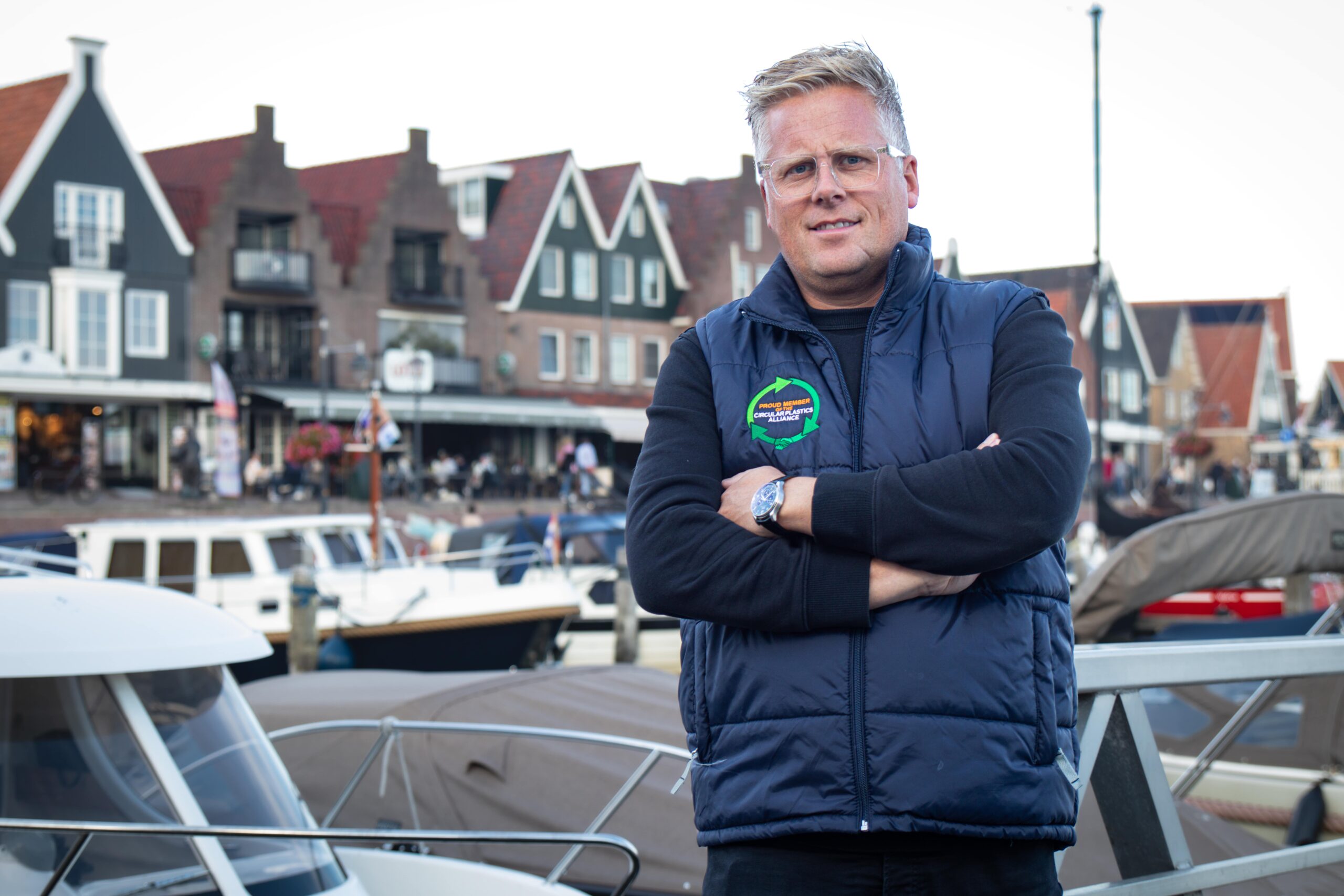News
'Big brands and retailers can create movement'

Henk Kras Jr.’s vision: ‘Big brands and retailers can create movement’
The challenges in the plastic recycling industry are well-known. In almost all cases, companies still choose cheap (virgin) plastic from China, the Middle East, and the US. Legislation at the national and European levels, such as the Packaging and Packaging Waste Regulation (PPWR), which mandates blending recycled plastic into packaging by 2030, is either shaky or non-existent. Alternatively, it imposes additional challenges on recycling companies. Meanwhile, 24 colleagues from the recycling world have closed their doors due to bankruptcy or have been forced to halt production. The gap created is only being filled further by fossil, cheap plastic from Asia. Because of the loss of these capacities, meeting the capacity requirements for the PPWR is also in question. Henk Kras Jr., founder and director of Circular Plastics Alliance (CPA), sees uncertainty in the industry but dares to fight against the tide for a healthy future of circularity and sustainability. He comes up with initiatives.
“Let me start by saying that I am proud of the partners in our alliance. The uneven playing field makes competition nearly impossible, and finances are under pressure. Despite this, the partners continue to roll out innovations and establish collaborations. The industry must continue to be stimulated. Besides the government, big brands and retailers can create movement in this. We need pioneers—companies that do not choose short-term gains and the lowest price, but who are aware of their ecological footprint and believe in storytelling. And what everyone knows: the obligation to make sustainability a real part of an organization is coming. No one can escape that. How great would it be if a number of brands dare to lead the way in this and collaborations emerge that make a difference? Recently, BMN in construction and KLM for passenger aircraft have launched initiatives with a fully circular loop. Many companies do not realize that much of their plastic waste can even be reused.”
In the heat of the moment
Most recycling companies are in survival mode, trying to keep their heads above water. Due to the previously mentioned situation with cheap plastic, shaky legislation, reluctance from banks, and rising costs, companies are facing structural losses without viable perspectives. Due to the series of bankruptcies and the bleak outlook, Kras Jr. sees the role of the Netherlands as the cradle of the recycling industry fading. “The madness of the day reigns. And I understand that. Even at Kras Recycling, we are revisiting our core tasks. What will we do for 2026 if nothing changes? Everyone has to redevelop and create new business models in this industry. Because 2030 is seen as the holy grail with the obligation of recycled plastic in packaging, but who says to me that this target will remain in place and be enforceable? And that there will be oversight on that.”
Kras Jr. sees, for example, developments around alternative methods of plastic waste processing. “Waste remains, so we must continue to innovate. For example, through chemical plastic recycling, which is converted into naphtha, a basic raw material for new plastics. Recently, I visited Indaver in Belgium, which is far advanced in this form of reuse.”
Government: no new measures
Kras Jr. also hints at the indecisiveness within the national government. During a parliamentary debate in September, it became clear that the caretaker cabinet saw no need for new measures. “While we are shouting for perspective and help. Financial help. But above all, through legislation that ensures a level playing field. In the Netherlands and in Europe, through taxes, levies, and rules regarding certification labels. The upcoming ban on exports to non-OECD countries is also not helping this situation, while in those countries there are often factories that meet the highest standards and certifications. At the same time, much plastic waste is already unnecessarily being incinerated. We have all kinds of ambitions to live in a circular society in the coming years and decades, but at the same time, the foundation for this is being broken down. And Asia continues to gain ground. It’s not a difficult calculation to conclude that the ambitions and agreements for Europe are becoming nearly unachievable this way.”
Collaboration with governments
Back to the previously mentioned pioneers. Kras Jr. sees a situation in many large companies where departments communicate poorly with each other and there is inefficient work. On paper, there is attention for sustainability, but in practice, departmental processes run alongside each other, and sustainability is not fully appreciated. This is one of the reasons for CPA to explore the possibilities for strategic collaborations with governments. Possibly in the structure of a foundation. “Together with governments, you have the chance to enter companies ‘higher’ and have more impact. Additionally, as a foundation, you are more accessible for necessary subsidies and financial support. This change could move the circular transition further and get innovations off the ground faster. I am hopeful about this development and what this will mean for the future of the circular transition and the plastic recycling industry. Keep taking small steps together, only then will we make a difference.”
Would you like to find out more about our Circular Plastics Alliance?
If you have any questions, want to make a comment or find our more. please contact us.